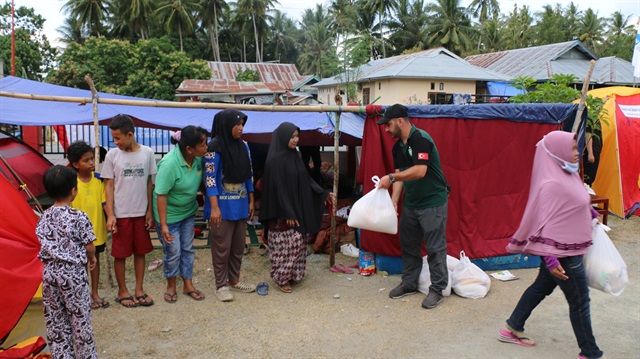
A few foreign aid workers have been in the disaster zone, including some searching for survivors in the ruins of collapsed buildings in Palu, 1,500 km (930 miles) northeast of the capital, Jakarta. A German group brought in a water-purification system.
As well as being concerned to show it can manage disasters on its own, Indonesian governments are wary of being too open to outside help because they could face criticism from political opponents.
There is particular resistance to the presence of foreign military personnel as it could be seen as an infringement of sovereignty.
"There are political sensitivities, especially with an election coming up, and sovereignty is another issue,” said Keith Loveard, senior analyst with advisory and risk firm Concord Consulting, referring to polls due in Muslim-majority Indonesia next year.
Many countries regulate the activity of foreign aid groups but restrictions are sometimes set aside after major disasters.
Many of the displaced in Sulawesi are living in basic shelters in Palu and surrounding hills. A plan to relocate communities is being drawn up, the agency said.
The government has allocated 560 billion rupiah ($37 million) for quake relief and has said some 20 countries have offered help.
Sulawesi is one of Indonesia's five main islands. The archipelago sees frequent earthquakes and occasional tsunami.
In 2004, a quake off Sumatra island triggered a tsunami across the Indian Ocean that killed 226,000 people in 13 countries, including more than 120,000 in Indonesia.
Foreign governments and aid groups played a big role in the emergency response and recovery efforts in 2004.








